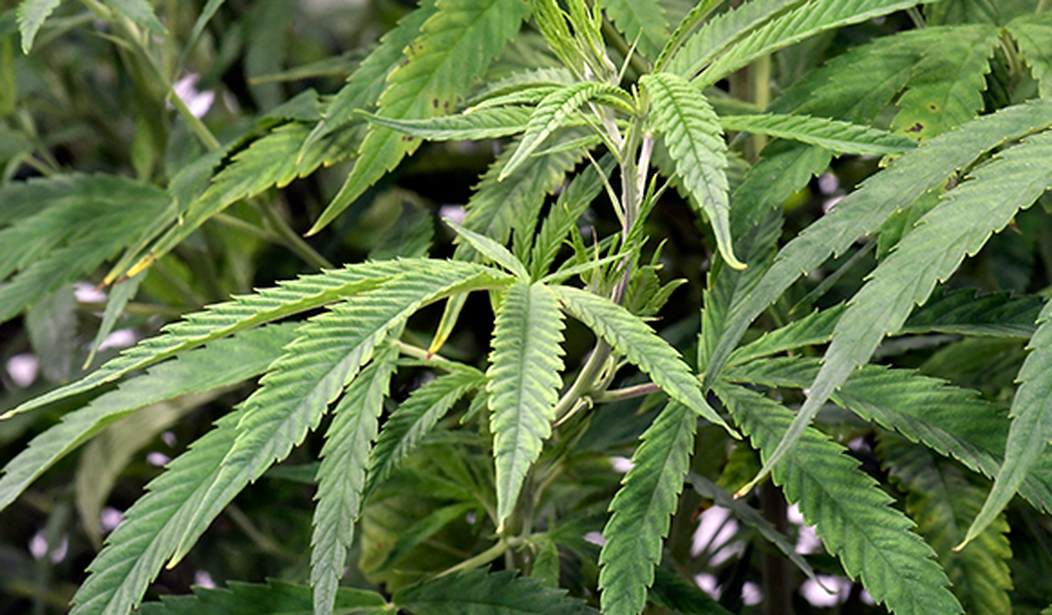Fairfax County, Virginia: The largest county in Virginia with a population of 1.2 million people, elected a George Soros-backed prosecutor for a leftist re-design of criminal prosecution. On January 1, 2020, the Soros plant, Steve Descano, took office. The very next day, he announced that Fairfax County is officially a marijuana possession sanctuary. Fairfax is already a sanctuary city for illegal aliens.
Descano declared this position during his campaign, saying, "I would not prosecute cases of marijuana possession." Descano called his approach to criminal justice reform "a holistic approach." He reaffirmed his position a few weeks ago on Twitter, stating that marijuana possession was "not a threat to public safety and instead is racially discriminatory and only saddles people with criminal records." Citing financial burdens on taxpayers, racial disparities in those charged, and the subsequent federal consequences that illegal immigrants convicted of possession will face, Descano formally announced that his prosecutors will not be prosecuting possession of marijuana charges. Parisa Dehghani-Tafti, another Soros-backed prosecutor who took office on January 1 in neighboring Arlington County, is expected to roll out a similar policy. This type of "criminal justice reform" is what we have come to expect of Soros-backed prosecutors.
Under Virginia law, marijuana possession remains unlawful. Fairfax County police charge over 2,600 marijuana possession cases each year.
Exactly one year ago, Gregory D. Underwood, a leftist prosecutor in Norfolk, a Virginia city about 200 miles southeast of Fairfax, attempted to dismiss all of the marijuana charges pending before the Circuit Court. Underwood claimed racial disparity in arrests as his political basis for doing so. Norfolk judges did not consistently honor his motions for dismissal, so Underwood took his case to the Supreme Court of Virginia. In the case facts presented to the Supreme Court, Underwood told a Circuit Court judge that he was "entitled" to dismiss a marijuana charge. The Supreme Court disagreed, saying that Virginia judges have "no duty" to dismiss a case just because a prosecutor asks for a dismissal. Virginia judges, thus, continue to maintain discretion over marijuana cases. A Portsmouth, Virginia, prosecutor was similarly engaging in dismissal of marijuana cases throughout 2019, though she has recently run into some opposition from the local judges.
Recommended
Virginia's Attorney General, Mark R. Herring, the second Virginia Democrat in the shameful blackface scandal, publicly called for marijuana law reform in June of 2019, after the Supreme Court of Virginia decided that judges will remain in control of the dismissal decisions in marijuana cases. Under Virginia's separation of powers, the Virginia General Assembly, the state legislature, is responsible for writing state laws. Local police officers, the enforcement arm of the legislature, are entrusted to arrest those in violation of these laws. Then, prosecutors are empowered to complete enforcement of these cases in Virginia courts. Judges determine whether the facts of a particular case meet the standard for conviction. Local city governments cannot write their own laws to contradict state laws, and Virginia prosecutors are not endowed with legislative powers to amend state laws.
The new stream of progressive prosecutors, thus, rely on their power of discretion in an attempt to decriminalize certain behaviors which they deem improperly criminalized by the legislature. Critics call this an abuse of power. Prosecutors were not elected to write laws but were instead chosen to enforce laws that have been written by the legislature. Indeed, the politicians who ran for prosecutorial office could have instead run for legislative office where they would have had a proper, lawful right to change the law. Prosecutors like Descano and Underwood are engaging in the evasion of Virginia law. U.S. Attorney General William Barr, who resides in Fairfax County, warned that prosecutors planted by Soros to pursue "social agendas" at the cost of effective law enforcement are dangerous.
In an official advisory opinion issued just two weeks ago, Attorney General Herring concluded that localities must comply with the laws enacted by the Virginia state legislature. Herring stated that localities could not decline to enforce laws enacted by the General Assembly, that there is no recognized legal authority that allows localities to refuse to participate in the enforcement of state law. Herring was opining on whether the Second Amendment "sanctuaries" have the power to refuse to enforce the anticipated new gun laws. Nonetheless, his legal analysis cannot be limited to just Second Amendment sanctuary cities and applies equally to marijuana sanctuaries.
In terms of legal forgiveness in Virginia for marijuana law transgressions, the state legislature has enacted a first-offense dismissal
Washington, D.C., which borders Virginia near Fairfax, had legalized the possession of small amounts of marijuana back in 2015. Marijuana possession in Maryland, the second state to border Virginia near Fairfax County, remains unlawful. Marijuana possession in one form or another, has been legalized in 11 states, in addition to Washington D.C.

























Join the conversation as a VIP Member